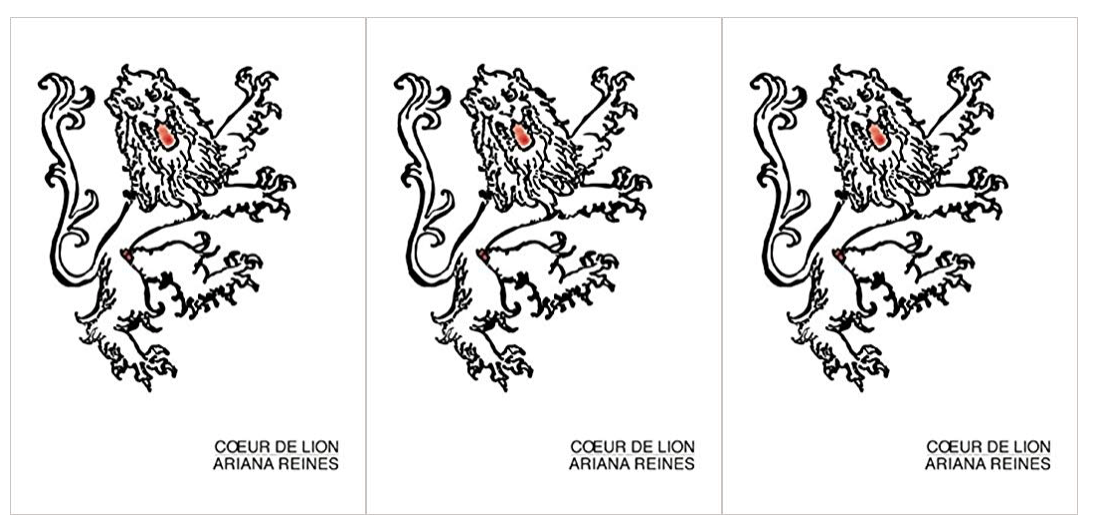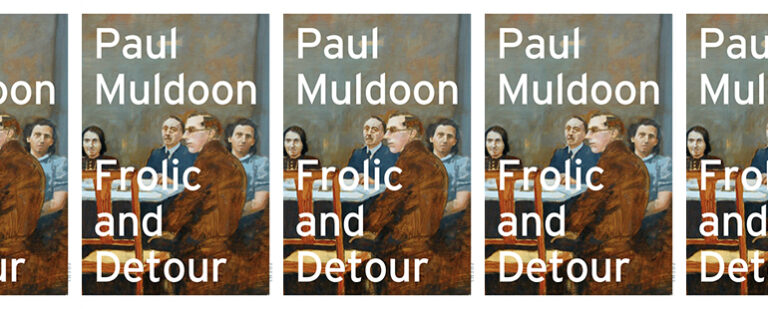Coeur de Lion

Coeur de Lion
Ariana Reines
Fence Books, September 2011
$15.95
128 pages
Coeur de lion (“lion-heart”) is the brand of cheese pictured in the frontispiece to Ariana Reines’s second book of poetry. More famously, it’s the cognomen of Richard I of England, who also turns up, on page 65. Wealthy, handsome, vain, an aspiring but not very accomplished writer who liked being written about and had a deadly anti-Semitic streak, Richard neatly parallels Jake, the “you” whose affair with the book’s “I” is tracked across peaks of exaltation and swamps of abjection.
“Just pretty enough / Just dumb enough / To be my muse,” Jake is at work on a book to be titled “Mein Cock”; he refers to his beloved as a “pretentious gypsy Jewess goth”; and he brings the title’s allusion full circle after the couple’s first night of intimacy: “The morning / After our first night you told / Me my pussy smells good, / Like Swiss cheese.”
Coeur de Lion was first published by micro-press Mal-O-Mar in 2007, very shortly after Reines’s startling, prize-winning debut, The Cow. Unlike The Cow—which wore the full armor of the avant-garde, bristling with dislocation, disjunction, and appropriations from sources as diverse as the Koran, Rilke, and the Merck Veterinary Manual—Coeur de Lion is shockingly plain, frank, and exposed, almost a return to confessional poetry. It runs the risk of sometimes sounding like a teenager’s journal (“It took some courage for me to call you / Because you’d been kind / Of distant and I saw the effort / You were making to be pleasant / With me”), the risk of humiliating admissions (“I read some of what she wrote / To you when I broke into your gmail account”), and the risk of plain-spoken honesty about the life of one’s body, of which the quoted lines about the smell of cheese are a relatively tame example. Yet every risk pays off; Coeur de Lion has the gravitational pull of a black hole. A year ago, copies were fetching three-figure prices on used book sites.
Fence Books’ new edition of Coeur de Lion will cut an even wider swathe. It has some of the poignancy of Dickinson’s “Master” letters, as we witness a fiercely intelligent and creative woman trying to understand the depth of her feeling for a much less intelligent and less creative man. It has some of the texture of a campus novel, with the couple bombarding each other with books (Bataille, Sebald) and music (Diamanda Galas, Arthur Russell) and ducking out of seminars with Alain Badiou in order to have sex in a bathroom. It is primarily a lyric sequence about an affair, yet the key to the whole may be a long passage about the poet’s mother; abrasively coarse at times, it dissects with the finest of scalpels “the ‘you’ of poetry,” the convolutions of lyric’s conjuring of the other.
“Cheese, too, / has a heart,” Reines writes. Coeur de Lion is a heart unforgettably laid bare.


